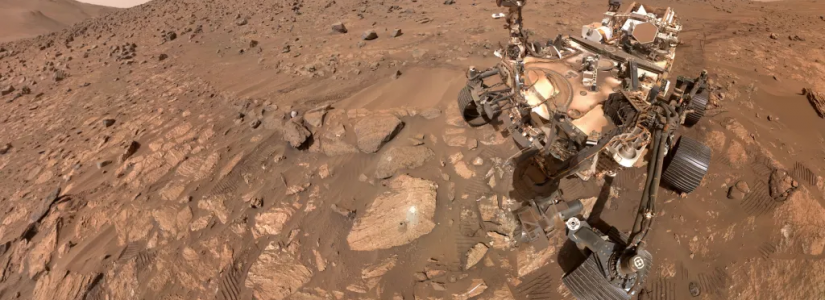NASA's Perseverance Rover Discovers a Clue That Might Point to Ancient Life on Mars

Katie Stack Morgan, a leading scientist on the Perseverance project, explains that although this finding isn't direct proof of life, it's the most intriguing discovery they've made so far.
On July 21, the rover drilled into a reddish rock named Cheyava Falls, after a landmark in the Grand Canyon. This particular rock contained organic molecules, which are basic ingredients for life.
This announcement was made during a conference about Mars exploration, making it a significant milestone because finding organic molecules has been challenging since Perseverance landed in an ancient, dry lake known as Jezero Crater back in 2021.
Before this, NASA's Curiosity rover had found organic molecules on Mars in 2014, but until now, Perseverance had not discovered similar evidence in Jezero Crater.
Adding to the thrill, the scientists noticed that the rock had unusual white spots with black rims, looking somewhat like leopard spots. When examined closely using the rover's high-tech instruments, these spots were found to contain iron phosphate.
On Earth, patterns like this often involve ancient microbes. While these do not prove the existence of life by themselves, they suggest that conditions may have existed that could support life.
However, the rock also has other features that confuse scientists, such as white veins filled with crystals, indicating that it might have volcanic origins. These mixed signals make it hard to understand how the rock was formed and whether it might have supported life.
Paul Byrne, a planetary scientist, suggests that while this discovery could be a significant clue to past life on Mars, it's also possible that the spots were formed through non-biological processes.
To get a definitive answer, scientists say we need to bring these Martian samples back to Earth for advanced analysis. Perseverance is part of a larger mission to collect such samples for future return to Earth, although the timing of this return mission is currently uncertain due to budget constraints.
Despite these uncertainties, the Perseverance team is determined to continue collecting exciting samples like this one, hoping that such discoveries will underline the importance of retrieving Martian rocks for detailed study on Earth.
This finding is not only a potential step closer to proving ancient life on Mars but also highlights the need for continued exploration and study of the red planet.
(Featured Image by NASA)
-
Subscribe to our Weekly Newsletter for up-to-date articles and resources!









